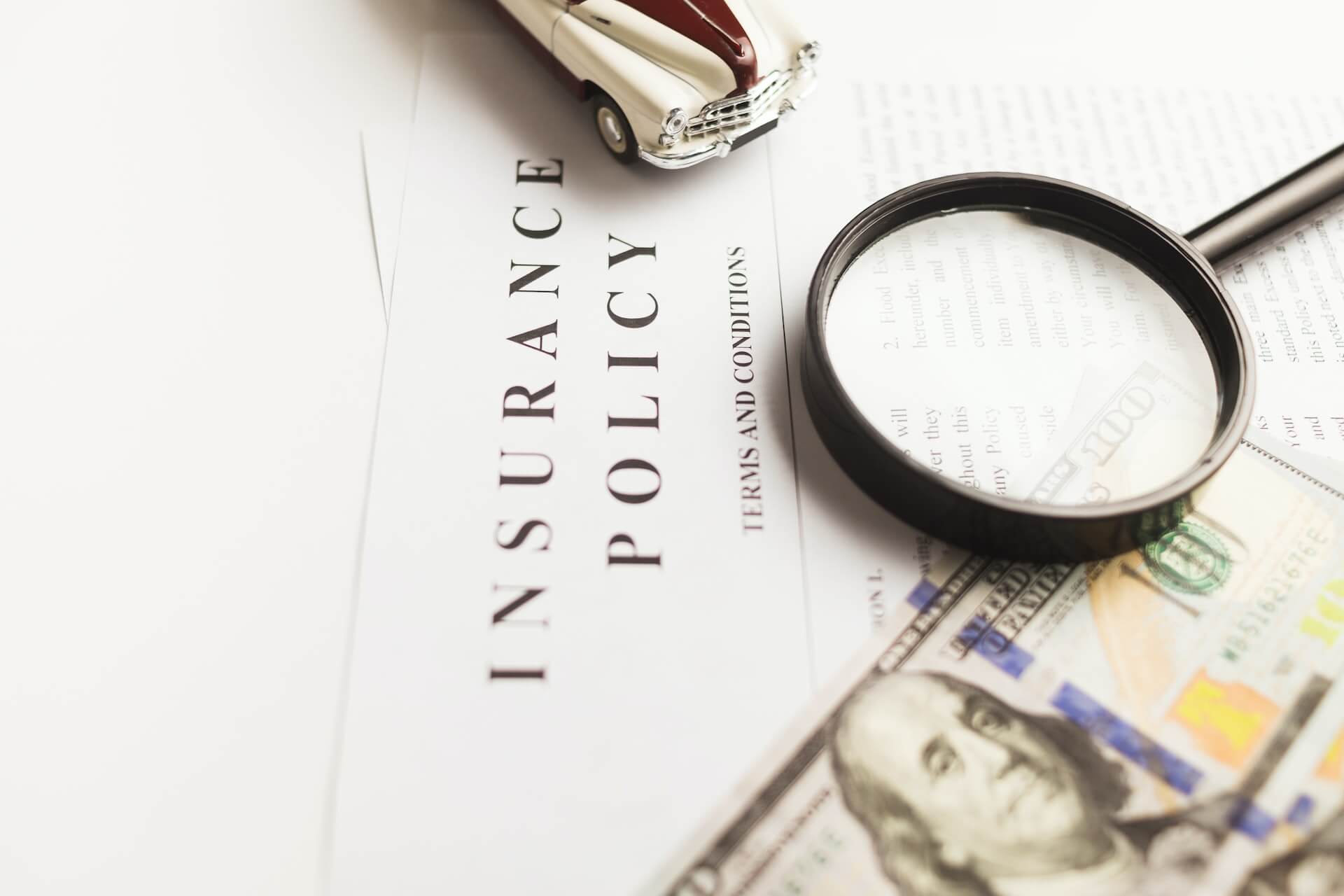Best types of insurance for property investors

Many things can go wrong for real estate investors, from unexpected natural calamities to careless tenants. Expenses incurred to restore a home to its pre-damage condition can quickly diminish a business’s revenues. However, with the proper insurance, you can be assured that your investments (and your bank account) will be safe.
Remember that not all real estate investments are created equal, and your investment objectives will play a part in determining the kind of protection you require. An investor who intends to rent out a property, for instance, might require insurance to protect against nonpayment by tenants or a policy to replace lost rental income in the event of property damage. If you aim to flip the property, you don’t need to worry about this, but if you have people working on the renovations, you should consider getting workers’ compensation insurance.
Your insurance should also consider the type of investment property you’re buying. For instance, the cost of insuring a building with multiple units will be more than that of a building with just one. Your rental property will be safer against natural disasters if you take the time to get the necessary insurance coverage in place. You may learn more about the different policies out there and whether or not they would be a good fit for you by reading the information provided below.
Why property investors need insurance
- It covers temporary living expenses
It is necessary to find temporary housing when your insured home sustains damage. Your insurance will pay for all your essential living costs during this period.
- It covers the loss or damage of assets
Insurance policies can protect more than just your home. They can also protect your jewelry, electronics, clothing, furniture, and other valuables.
- It facilitates easy loan approval
The loan approval process might move quicker at some banks and credit unions if the applicant can show that their property is insured. Some banks even include it as a requirement for account opening. Having your property insured will help your loan application move through more quickly.
- Lawsuits
Every company risks being sued at some point, but companies with property holdings may be more frequently targeted. Imagine a situation where a visitor to your premises sustains injuries, a house burns down, or a worker who isn’t insured suffers a fatal fall from the roof. A real estate investor who does not have insurance could lose everything in any of these situations, regardless of who is to blame.
All of your property, both personal and professional, could be at risk from a single lawsuit. In addition, the mere mention of a lawsuit can damage one’s reputation. Real estate investing is fraught with risk, but you may mitigate some of that risk by purchasing insurance.
Are you ready to start investing?
Start investing
with LBC Capital Income Fund, LLC Income Fund
10 best types of property investor insurance
A crucial component of being a landlord is ensuring adequate insurance on your rental property. Your claim could be denied if you don’t have the right insurance coverage. If you have too much insurance coverage, your operating costs could go up, and your profits could go down. Working with an insurance broker focusing on products for landlords and real estate investors is crucial for protecting yourself and your investment. It’s essential to tailor your insurance to your investment property and your financial situation, but here are some categories to think about:
1. Landlord Insurance
Landlord insurance, sometimes called apartment building insurance, is a must-have for anyone planning to rent out a piece of property they own. This policy includes liability, hazards, and income loss coverage, which is ideal for landlords.
2. Liability Insurance
Consider the possibility of a lawsuit being filed against you if a renter, their guest, or a repair person sustains an injury on your property. The injured party may hold you, the property owner, financially accountable for their medical bills, lost wages, and emotional distress.
That’s why having liability insurance is so important. It shields you from financial responsibility for accidents on your premises. By purchasing liability insurance, you can avoid worrying about paying for the payout and legal fees associated with defending yourself against such claims. The liability limit you select for your landlord insurance policy should be high enough to cover any potential losses.
3. Hazard and Fire Insurance
Fire, water, lightning, smoke, explosions, and storm damage (including ice, sleet, and snow) are all things that can be claimed on an insurance policy. However, it would be beneficial if you considered whether the money you receive from a claim would be sufficient to cover the costs of the damage.
Therefore, when making a claim, many real estate investors prefer to use the property’s total replacement cost rather than its current cash worth.
4. Flood Insurance
Basic hazard insurance coverage can assist shield you from the financial burden of fixing water damage to your home. A burst pipe, for instance, could be the culprit. But what if the rains come down so hard that your house floods? If you own rental property in a FEMA-designated flood zone or are concerned that a natural disaster, such as a hurricane, could cause flooding, you should get flood insurance (which your lender may require).
5. Loss of income coverage
Most real estate investors depend on rental income, whether they have just one investment property or a large portfolio. What, therefore, should you do if a covered disaster or risk renders your rental home uninhabitable for an extended time?
This means that no money will come in for a while. Loss of income insurance can help you get some of your money back if a disaster, like a fire, makes your rental property unusable.
6. Rent Guarantee Insurance
Losing rent money because of a natural disaster isn’t your only concern; a renter not paying could cause just as much financial hardship. Nothing in life is set in stone, so it’s essential to do your research and only rent to tenants you can trust. Accidents can and will still happen, though. There is a risk of losing income if the tenant does not pay. A rent guarantee policy will compensate you if this happens, so your financial flow is not disrupted.
7. Worker’s Compensation
If an employee is hurt on the job, their family will be taken care of financially in the event of their death or incapacity, thanks to worker’s compensation coverage. You’ll be shielded from liability if the employee decides to sue you for the injury. All real estate investors do not need a policy that includes workers’ compensation coverage. Still, if your company has employees, you should discuss adding worker’s compensation coverage with your insurance agent.
8. Builder’s Risk Insurance
Builder’s risk insurance is something to consider if you plan to acquire properties and fix them up as an investment strategy. Insurance for home renovations typically includes protection from theft, fire, vandalism, or injury to contractors or employees.
However, builder’s risk insurance is not mandatory for all investors. If you plan on doing major renovations or upgrades that will take longer than 60 days, it may be wise to get this supplemental coverage, as your standard landlord policy may not apply.
9. General contractor insurance
As their rental property portfolios expand, some investors reach the stage where they are comfortable doing general contracting tasks on their own, such as developing a rehab strategy and coordinating the work of subcontractors. Coverage for permit applications and subcontractors working under the general contractor’s supervision is provided by the general contractor’s insurance policy.
10. Umbrella Insurance
If you exceed the limitations of your primary liability policy, additional protection is provided by umbrella insurance. As an illustration, an umbrella insurance policy may pay for your legal defense and the injured party’s medical bills, therapy, and lost earnings in the event of a lawsuit.
How to choose the right insurance for rental property
An error in selecting inadequate insurance for a rental property might have severe financial consequences. Choosing the wrong policy could leave you unprotected in a natural disaster or cause financial hardship if you end up paying for unnecessary coverage.
Important considerations for selecting the appropriate insurance and supplementary protection for your rental property are outlined below.
Be honest
Most of the time, insurance costs are higher for a rented home than for a home that is the owner’s main residence. As a result, some investors try to save money by concealing that the property is being used as a rental by the insurance provider.
If this happens, the insurance company may decide not to pay a claim or cancel the coverage altogether. Remember that insurance firms profit in two ways: from premiums and by denying legitimate claims.
Actual cash value vs. replacement cost
If you have an insurance policy that covers “actual cash value,” the insurer will pay out an amount equal to the purchase price minus any depreciation in the land. The total cost to repair or replace damaged property is known as “replacement cost” and is covered by most insurance policies.
Always check sales comps before renewing your insurance coverage each year if you own rental property in a quickly appreciating area.
Type of policy
There are primarily three types of property insurance: landlord insurance for rented properties, vacant insurance for properties during renovation, and builder’s risk insurance for extensively renovated homes. Suppose you have recently completed renovations and are ready to rent your property. In that case, you should also contact your insurance agent to discuss upgrading your policy to account for the possibility of lost rent, tenant liability, and pets.
Deductibles matter
When filing a claim, you must pay an amount known as your “deductible.” Insurance deductibles exist to ensure policyholders have “skin in the game” and to reduce the frequency with which they file claims. The general rule is that the lower your deductible is, the higher your premium will be each year. Be prepared to pay your deductible in the event of a claim by setting aside funds in advance.
Claims can hurt
There is a school of thought among investors that says they should use the insurance they paid for. But if you file too many claims on your home or with your insurance company, they may raise your rates or even cancel your policy. If your home is deemed too risky to insure, you’ll have fewer carriers and higher premiums.
Get policy discounts
Insurance companies, like any other company, value customer loyalty, and loyalty takes the form of continued business. Suppose you already have insurance with a certain business for your home or vehicle. In that case, when you’re looking for a policy to cover your rental property, you can ask if they have insurance for people who invest in real estate. Many insurance companies are happy to work with you to put together a package of policies that fits your needs and saves you a lot of money.
Invest in LBC Capital Income Fund, LLC Income Fund
Start investing
with LBC Capital Income Fund, LLC Income Fund
The Bottom Line
Investing in real estate can pay well, but you should also be aware of the dangers. If you don’t have the necessary insurance coverage, you could end up with a much smaller payout or possibly a claim denial for your rental property.
How much and what kind of insurance you require depends on your investment goals and the current state of the property. The aforementioned insurance policies are an excellent beginning for any real estate investor. However, consulting with a qualified insurance agent is essential to ensure you obtain adequate protection.
Latest posts
Blog page
Top 5 Mistakes to Avoid in Trust Deed Investing
Trust deed investing can be a solid way to earn real estate–backed income without owning or managing property. But like anything in private markets, the results tend to separate investors who treat it like a “real underwriting decision” from those who treat it like a high-yield savings account. The good news is you don’t have […]

Trust Deed Investing 101: What It Is and How It Works
Most investors understand real estate. Some own rental properties. Others hold REITs. But fewer are familiar with a quieter corner of real estate finance that has been around for decades, especially in California — trust deed investing. At its core, trust deed investing allows you to act as the lender rather than the property owner. […]